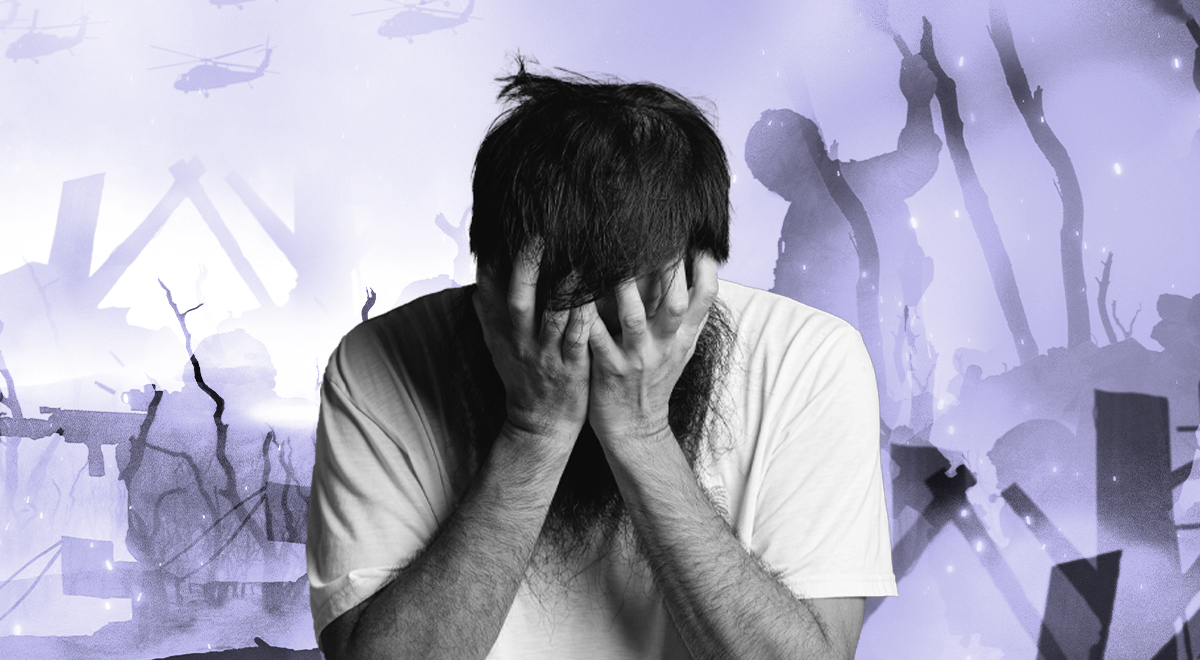
It is often said that health is not valued until sickness strikes. But why do we torture ourselves, waiting for life to break us before understanding the value of our well-being? And what is health? Is it just the ability to walk, talk, and breathe, or does it go deeper: an intricate balance of mind, body, and soul?
True health is hard to define, yet its absence is impossible to ignore. It isn’t just the absence of physical illness but the presence of something more profound: peace. A harmony that begins within, where the mind and body are intertwined in ways we often take for granted. For Lebanese students during times of war, that harmony was slowly shattered. The war left scars unseen but deeply felt, forcing them to confront the fragility of their mental health while striving to maintain their academic lives.
War doesn’t just destroy cities and buildings; it destroys peace. Its toll is insidious, creeping into daily life in ways that are easy to dismiss at first. Many students thought they were unaffected, continuing to study and take exams as usual, until they realized it took twice as long to focus, and they were forgetting material almost as soon as they learned it. Nights were restless, broken by nightmares and the terrifying echoes of bombs. Fatigue became an omnipresent shadow, stealing energy and motivation.
How does one study while the world crumbles outside the window? How does one focus on equations and essays while the country is ripped apart by violence? It’s a cruel paradox: the need to invest in the future while the present feels unbearably fragile.
Students had no choice but to adapt. They forced themselves to focus on textbooks and memorized facts that seemed worthless for a moment while their hearts raced with anxiety. This was not the college experience they had dreamed of.
Yet, they pushed through because they had no choice. War tested them in unimaginable ways, forcing them to prioritize studies while living in fear, a cruel reality no one should face.
Each student coped differently. Some cried until they felt numb; others were in denial. Many turned to prayer or meditation, seeking moments of calm in the chaos. Coping wasn’t about thriving; it was about surviving. They had to silence their emotions, shift priorities, and focus on getting through one day at a time. It wasn’t about being strong but rather about not breaking.
But even in the darkest moments, there was growth. Pain has a way of shaping us, chiseling away illusions and revealing resilience we didn’t know we had. These students became stronger, not by choice, but by necessity. The challenges they faced forged an unshakable toughness, though it came at a great psychological cost.
Their journey is a testament to human resilience, but it’s also a sad reminder of the invisible toll of war. Mental health is fragile, and no one should be forced to endure such suffering at a time meant for fulfillment and self-discovery.
This is not how life should be. It is unfair to ask students to split their hearts between survival and dreams. Yet, despite the odds, they endured, proving that the human spirit can withstand even the most devastating storms.
Their stories remind us of the importance of mental health, not just in times of crisis, but always. True health is more than survival; it is about living fully, freely, and deeply, even when the world feels as if it’s falling apart.